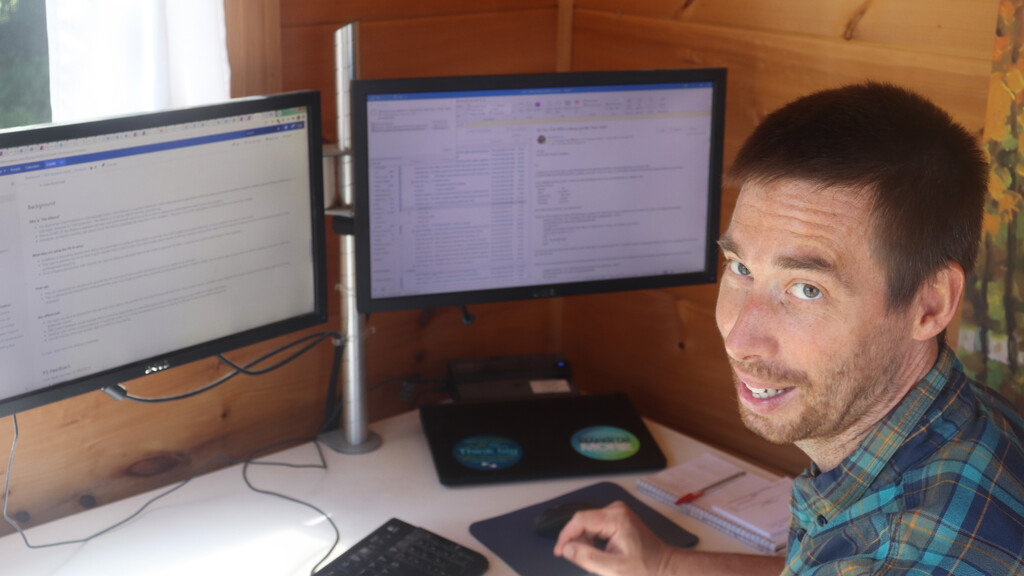
HOULTON, Maine — Nate Bodenstab and his colleagues are working together to help humanitarian workers better the lives of children around the world.
Bodenstab works for Nuance Communications, a company based outside Boston, Massachusetts, that develops virtual assistants and artificial intelligence.
But he doesn’t work in the city. He works in a small, Amish-built shed equipped with electricity in his own yard in Houlton, more than 300 miles away from Nuance’s corporate headquarters.
“That’s one great thing about computer science work, is that you can kind of do it from anywhere,” said Bodenstab, who originally hails from Oregon and moved to Houlton after marrying his wife, Sharon, a native of the town. “My team is all over the world, and I’d say about half of my team works remotely like I do from their houses,” he said.
Bodenstab’s most recent project with Nuance has been building a virtual assistant, or chatbot, for The Alliance, an organization made of several children’s humanitarian groups such as UNICEF and Save the Children.
Due to the COVID-19 pandemic, people involved in social work and humanitarian aid have had difficulties reaching out to help children threatened by issues such as child labor and underage marriage.
But by using a “chatbot,” similar to those used by banks and large online retail services to help with customer support, The Alliance can deal with the increased traffic of people around the world seeking solutions to COVID-related issues.
The chatbot is essentially an artificial computer program that has been designed to answer questions posed by real people over the internet. Humanitarian experts shared common questions and numerous answers with Bodenstab and his team, who built the information into the virtual assistant.
“They [The Alliance] have their experts that know in this situation, for child protection in COVID, this is what you should be doing to help children,” Bodenstab said. “So they basically provide us with the top hundred questions and answers in that situation. And we’ve trained the artificial intelligence chatbot to know those answers, and when people ask them in different ways, you can think of all the ways somebody might ask a question.”
Bodenstab managed a team of 25, in locations spanning from Seattle to Germany, to implement the project for The Alliance’s website. The chatbot launched at the end of July, and since then Bodenstab and his team have continued to use machine learning to keep improving the user experience for the social workers and government agency employees using it.
“You give it a lot of examples, and say in this situation, you should give this response,” said Bodenstab of how the AI learns to improve itself. “You vary up those examples that you show it, and then it kind of learns over time.”
Bodenstab hopes that his experience of working remotely from rural Maine will inspire others living in the cities to move to places like Houlton, where he believes the lifestyle is much more preferable.
“I don’t have to commute. I never have to worry about finding a parking spot. You get to know people in the town,” he said. “You can also buy your own house here, where it costs five times less than in the city. You can get involved in most anything you want to get involved in. People are always looking for help.”







